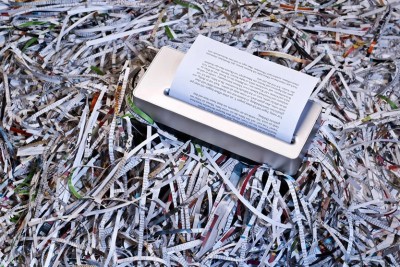
The reputation of Chinese science has been “adversely affected” by the number of retractions in recent years, according to a government notice.Credit: Qilai Shen/Bloomberg/Getty
Chinese universities are days away from the deadline to complete a nationwide audit of retracted research papers and probe of research misconduct. By 15 February, universities must submit to the government a comprehensive list of all academic articles retracted from English- and Chinese-language journals in the past three years. They need to clarify why the papers were retracted and investigate cases involving misconduct, according to a 20 November notice from the Ministry of Education’s Department of Science, Technology and Informatization.
The government launched the nationwide self-review in response to Hindawi, a London-based subsidiary of the publisher Wiley, retracting a large number of papers by Chinese authors. These retractions, along with those from other publishers, “have adversely affected our country’s academic reputation and academic environment”, the notice states.
A Nature analysis shows that last year, Hindawi issued more than 9,600 retractions, of which the vast majority — about 8,200 — had a co-author in China. Nearly 14,000 retraction notices, of which some three-quarters involved a Chinese co-author, were issued by all publishers in 2023.
This is “the first time we’ve seen such a national operation on retraction investigations”, says Xiaotian Chen, a library and information scientist at Bradley University in Peoria, Illinois, who has studied retractions and research misconduct in China. Previous investigations have largely been carried out on a case-by-case basis — but this time, all institutions have to conduct their investigations simultaneously, says Chen.
Tight deadline
Table of Contents
The ministry’s notice set off a chain of alerts, cascading to individual university departments. Bulletins posted on university websites required researchers to submit their retractions by a range of dates, mostly in January — leaving time for universities to collate and present the data.
Although the alerts included lists of retractions that the ministry or the universities were aware of, they also called for unlisted retractions to be added.

More than 10,000 research papers were retracted in 2023 — a new record
According to Nature’s analysis, which includes only English-language journals, more than 17,000 retraction notices for papers published by Chinese co-authors have been issued since 1 January 2021, which is the start of the period of review specified in the notice. The analysis, an update of one conducted in December, used the Retraction Watch database, augmented with retraction notices collated from the Dimensions database, and involved assistance from Guillaume Cabanac, a computer scientist at the University of Toulouse in France. It is unclear whether the official lists contain the same number of retracted papers.
Regardless, the timing to submit the information will be tight, says Shu Fei, a bibliometrics scientist at Hangzhou Dianzi University in China. The ministry gave universities less than three months to complete their self-review — and this was cut shorter by the academic winter break, which typically starts in mid-January and concludes after the Chinese New Year, which fell this year on 10 February.
“The timing is not good,” he says. Shu expects that universities are most likely to submit only a preliminary report of their researchers’ retracted papers included on the official lists.
But Wang Fei, who studies research-integrity policy at Dalian University of Technology in China, says that because the ministry has set a deadline, universities will work hard to submit their findings on time.
Researchers with retracted papers will have to explain whether the retraction was owing to misconduct, such as image manipulation, or an honest mistake, such as authors identifying errors in their own work, says Chen: “In other words, they may have to defend themselves.” Universities then must investigate and penalize misconduct. If a researcher fails to declare their retracted paper and it is later uncovered, they will be punished, according to the ministry notice. The cost of not reporting is high, says Chen. “This is a very serious measure.”
It is not known what form punishment might take, but in 2021, China’s National Health Commission posted the results of its investigations into a batch of retracted papers. Punishments included salary cuts, withdrawal of bonuses, demotions and timed suspensions from applying for research grants and rewards.
The notice explicitly states that the first corresponding author of a paper is responsible for submitting the response. This requirement will largely address the problem of researchers shirking responsibility for collaborative work, says Li Tang, a science- and innovation-policy researcher at Fudan University in Shanghai, China. The notice also emphasizes due process, says Tang. Researchers alleged to have committed misconduct have a right to appeal during the investigation.
The notice is a good approach for addressing misconduct, says Wang. Previous efforts by the Chinese government have stopped at issuing new research-integrity guidelines that were poorly implemented, she says. And when government bodies did launch self-investigations of published literature, they were narrower in scope and lacked clear objectives. This time, the target is clear — retractions — and the scope is broad, involving the entire university research community, she says.
“Cultivating research integrity takes time, but China is on the right track,” says Tang.
What next
It is not clear what the ministry will do with the flurry of submissions. Wang says that, because the retraction notices are already freely available, publicizing the collated lists and underlying reasons for retraction could be useful. She hopes that a similar review will be conducted every year “to put more pressure” on authors and universities to monitor research integrity.
What happens next will reveal how seriously the ministry regards research misconduct, says Shu. He suggests that, if the ministry does not take further action after Chinese New Year, the notice could be an attempt to respond to the reputational damage caused by the mass retractions last year.
The ministry did not respond to Nature’s questions about the misconduct investigation.
Chen says regardless of what the ministry does with the information, the reporting process itself will help to curb misconduct because it is “embarrassing to the people in the report”.
But it might primarily affect researchers publishing in English-language journals. Retraction notices in Chinese-language journals are rare.
